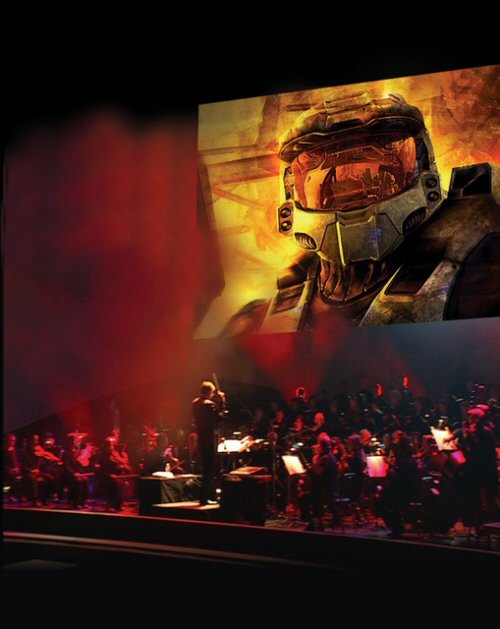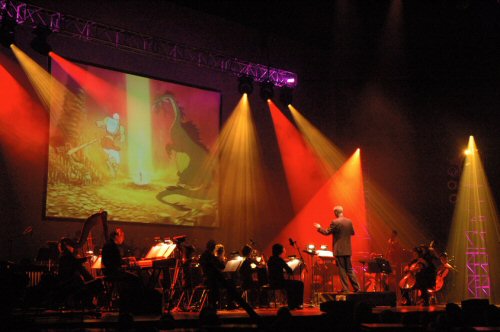Tommy talks about the gear he uses and the biggest challenges he's faced
HEXUS: What videogames have you worked on? And which one are you the most proud of?
Tommy:
There are over 250 games total. The complete list can be found here: www.tallarico.com/index.php?s=credits .
Some of the ones I am really proud of are Global Gladiators, Cool Spot, Aladdin, Earthworm Jim 1 & 2, Spider-Man, Metroid Prime, Tomorrow Never Dies, Tony Hawk Pro Skater, Unreal 2 & Tournament, Time Crisis series & most recently Advent Rising.
HEXUS: What is the most rewarding factor of your job?
Tommy:
Knowing that the music and sound I’m creating will eventually be heard by hundreds of thousands and in some cases millions of people. It’s strange and exciting at the same time to create something that so many people are eventually going to listen to. When a game like Earthworm Jim or Tony Hawk Pro Skater becomes a super huge success it excites me more from an exposure stand-point than a financial one. Likewise, when a game I’m really proud of and worked really hard on doesn’t do so well in the marketplace it has the opposite effect… no matter how much money you may have been paid. Advent Rising is a perfect example of this.
HEXUS: You’re often billed as being ‘one of the most successful game’s composers of all time’. How do you measure success and what attributes do you possess that have brought you to this point in your career?
Tommy:
It’s a hard question to answer but I think the fact that I’ve been doing it for so long and people are still interested in hiring me and my company says a lot. The awards, accolades, letters, interviews and albums over the years are always nice and always greatly appreciated, but to have people calling me and wanting my services year and year I think speak volumes for the level of quality and dedication that we try our hardest to put into each and every project.

HEXUS: How many different instruments can you play? And which one is your favourite?
Tommy:
I can physically play two, Guitar & piano. Piano is by far my favourite and has been my main instrument for over 35 years. About 20 years ago I decided to study and teach myself every instrument I could and how it’s played. That way I could figure out how it would be played on a midi keyboard. That way I could use those instruments and samples the way they are actually played. This is when I started to understand the power of great orchestration by masters like Beethoven, Mozart and John Williams.
HEXUS: What equipment and hardware do you use?
Tommy:
My main software tools of choice are all PC based and consist of Sony Vegas, Sony Sound Forge, Cakewalk, Nuendo & GigaStudio. I have superfast PC’s which are the latest designs powered and built by both AMD & Intel. I’ve always preferred JBL speakers and Mackie mixing consoles. My keyboard controller is currently a Yamaha Motif – 8 which I really like. Oh yeah… and they don’t call it the Music BUSINESS for nothing! So two other widely used software programs are Excel & Word!
HEXUS: What challenges and opportunities do you see emerging in the future of game composition?
Tommy:
I think you’re going to see a lot more 5.1 surround mixing going on as well as real-time interactive cross-fading music happening on-the-fly in real-time using live recordings and midi together…
Um, I think I hit the limit on the use of cool buzz words in one sentence.

HEXUS: What’s the biggest challenge you’ve faced so far?
Tommy:
The biggest challenge is getting video game publishers to understand the importance of music in a game. Not only as a part of the game itself, but all of the ancillary uses and outside effects it can have as well. Music is one of the only parts of a game that can stand on it’s own and be used in other forms of entertainment and media (i.e. cd soundtrack albums, television, movies, radio, internet, etc.). Video game companies are not in the industry of music so they sometimes forget that things like music can have another life outside of the video game. Our industry is still very young and still learning. There are some companies out there who already understand this. EA & UbiSoft are two that come to mind. Others need to follow in their footsteps.
I also believe that game marketing (in the U.S. anyway) still has a LOT to learn from things like the motion picture industry. The marketing and PR is for the most part pretty sad and needs a real shot in the arm.









